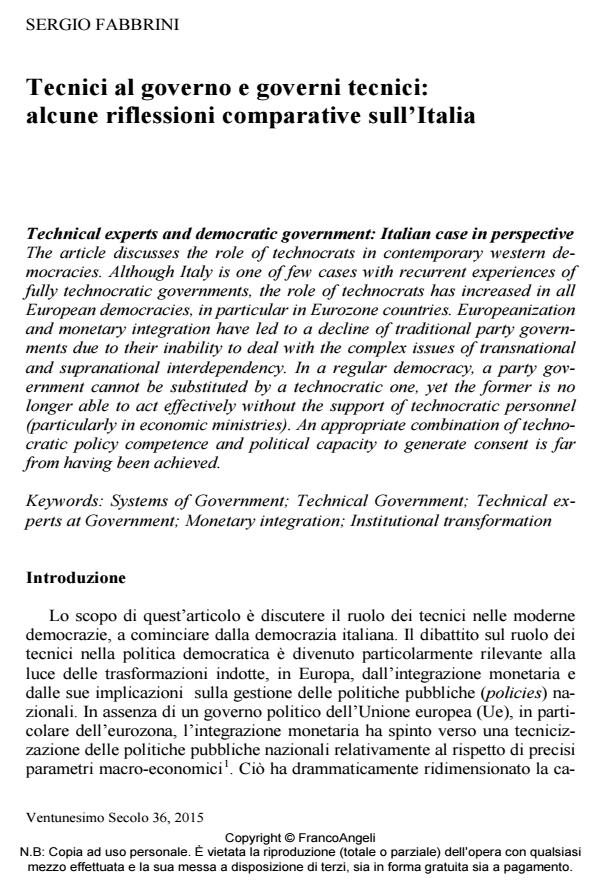Technical experts and democratic government: Italian case in perspective
Journal title VENTUNESIMO SECOLO
Author/s Sergio Fabbrini
Publishing Year 2015 Issue 2015/36
Language Italian Pages 15 P. 65-79 File size 90 KB
DOI 10.3280/XXI2015-036004
DOI is like a bar code for intellectual property: to have more infomation
click here
Below, you can see the article first page
If you want to buy this article in PDF format, you can do it, following the instructions to buy download credits

FrancoAngeli is member of Publishers International Linking Association, Inc (PILA), a not-for-profit association which run the CrossRef service enabling links to and from online scholarly content.
The article discusses the role of technocrats in contemporary western democracies. Although Italy is one of few cases with recurrent experiences of fully technocratic governments, the role of technocrats has increased in all European democracies, in particular in Eurozone countries. Europeanization and monetary integration have led to a decline of traditional party governments due to their inability to deal with the complex issues of transnational and supranational interdependency. In a regular democracy, a party government cannot be substituted by a technocratic one, yet the former is no longer able to act effectively without the support of technocratic personnel (particularly in economic ministries). An appropriate combination of technocratic policy competence and political capacity to generate consent is far from having been achieved.
Keywords: Systems of Government; Technical Government; Technical experts at Government; Monetary integration; Institutional transformation
- Politics by other means: an analysis of the discourses of Italian technocratic Prime Ministers Diego Giannone, Adriano Cozzolino, in Italian Political Science Review/Rivista Italiana di Scienza Politica /2024 pp.1
DOI: 10.1017/ipo.2023.16
Sergio Fabbrini, Tecnici al governo e governi tecnici: alcune riflessioni comparative sull’Italia in "VENTUNESIMO SECOLO" 36/2015, pp 65-79, DOI: 10.3280/XXI2015-036004